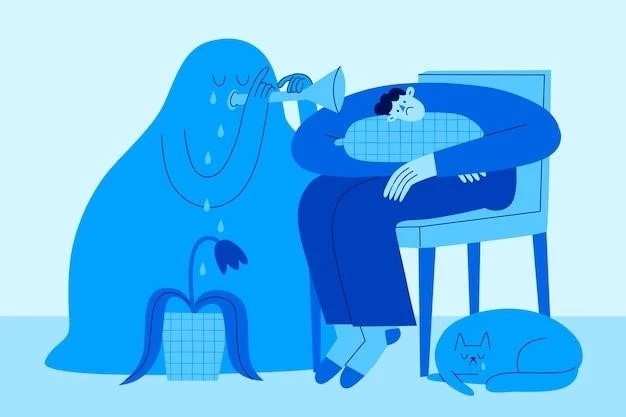Introduction
Post-traumatic stress disorder (PTSD) is a mental and behavioral disorder that develops from experiencing a traumatic event, such as sexual assault or warfare, causing flashbacks, nightmares, and severe anxiety.
Definition of Post Traumatic Stress Disorder (PTSD)
Post-traumatic stress disorder (PTSD) is a mental and behavioral disorder that develops from experiencing a traumatic event, such as sexual assault, warfare, traffic collisions, child abuse, domestic violence, or other threats on a person’s life or well-being.
Symptoms of PTSD
Post-traumatic stress disorder (PTSD) symptoms include reexperiencing the traumatic event, avoiding reminders of the event, hyperarousal, and negative changes in beliefs and feelings.
Individuals with post-traumatic stress disorder (PTSD) may reexperience the traumatic event through intrusive memories, flashbacks, nightmares, or intense emotional or physical reactions when reminded of the event, which can lead to significant distress and impairment in daily life.
Reexperiencing Symptoms
Individuals with post-traumatic stress disorder (PTSD) may reexperience the traumatic event through intrusive memories, flashbacks, nightmares, or intense emotional or physical reactions when reminded of the event, which can lead to significant distress and impairment in daily life.
Arousal and Reactivity Symptoms
Individuals with PTSD may experience arousal and reactivity symptoms, such as irritability, aggression, self-destructive behavior, hypervigilance, exaggerated startle response, difficulty concentrating, and sleep disturbances, which can significantly impact their daily functioning and quality of life.
Causes of PTSD
Post-traumatic stress disorder (PTSD) can be caused by exposure to traumatic events, previous traumatic experiences, and lack of social support, leading to significant mental and emotional distress.
Exposure to Traumatic Events
Post-traumatic stress disorder (PTSD) can be caused by exposure to traumatic events such as sexual assault, warfare, traffic collisions, child abuse, or domestic violence. These experiences can trigger the development of PTSD symptoms, impacting the individual’s mental and emotional well-being.
Previous Traumatic Experiences
Previous traumatic experiences, especially during childhood, such as witnessing or experiencing violence, accidents, or abuse, can increase the risk of developing post-traumatic stress disorder (PTSD), particularly when coupled with insufficient social support after the event.
Lack of Social Support
Individuals who lack adequate social support after experiencing a traumatic event are at a higher risk of developing post-traumatic stress disorder (PTSD). Social support plays a crucial role in coping with trauma and can help reduce the likelihood of developing debilitating PTSD symptoms.
Diagnosis and Treatment
Post-traumatic stress disorder (PTSD) is diagnosed based on specific criteria and can be effectively treated with various options including therapy and medication, particularly cognitive behavioral therapy (CBT).
Diagnostic Criteria for PTSD
A diagnosis of post-traumatic stress disorder (PTSD) requires exposure to an upsetting traumatic event. This may involve experiencing the event directly or witnessing it, with symptoms including disturbing thoughts, mental or physical distress, and emotional reactivity.
Treatment Options for PTSD
Effective treatments for post-traumatic stress disorder (PTSD) include therapy and medication. Cognitive processing therapy and prolonged exposure therapy are common forms of cognitive behavioral therapy used to address PTSD symptoms and help individuals recover from the impact of traumatic events.
Cognitive Behavioral Therapy (CBT)
Cognitive Behavioral Therapy (CBT) is a common treatment for post-traumatic stress disorder (PTSD). It helps individuals identify and change negative thought patterns and behaviors related to the traumatic event, providing coping strategies to manage symptoms and improve overall well-being.

Impact of PTSD on Daily Life
Post-traumatic stress disorder (PTSD) significantly affects relationships, work productivity, and may lead to other mental health issues such as depression and increased risk of anxiety disorders.
Effects on Relationships
Post-traumatic stress disorder (PTSD) can have a profound impact on relationships, often leading to difficulties in communication, emotional numbness, increased conflict, and challenges in forming and maintaining intimate connections. Individuals with PTSD may struggle to trust others, experience irritability or anger outbursts, and may withdraw from social interactions, affecting both personal and professional relationships.
Impact on Work and Productivity
Post-traumatic stress disorder (PTSD) can significantly impact work and productivity due to symptoms like flashbacks, mood disturbances, difficulty concentrating, and emotional reactivity. Individuals with PTSD may struggle to focus, interact with colleagues, and handle job stress effectively, leading to reduced work performance and potential absenteeism.
Risk of Other Mental Health Problems
Individuals with post-traumatic stress disorder (PTSD) are at an increased risk of developing other mental health problems such as depression, anxiety disorders, substance use issues, and suicidal ideation. PTSD can also impact daily functioning and quality of life.

PTSD in Specific Populations
Post-traumatic stress disorder (PTSD) presents unique challenges in military veterans, children, adolescents, and can manifest differently based on gender disparities.
PTSD in Military Veterans
Post-traumatic stress disorder (PTSD) in military veterans can stem from exposure to combat, witnessing traumatic events, or other intense experiences during their service. Veterans with PTSD may face challenges reintegrating into civilian life, managing emotions, and coping with memories of war.
PTSD in Children and Adolescents
Post-traumatic stress disorder (PTSD) in children and adolescents can result from experiencing violence, accidents, abuse, or natural disasters, affecting their emotional well-being and behaviors. Symptoms may include nightmares, detachment, and hypervigilance, impacting their overall development and mental health.
Gender Disparities in PTSD
Post-traumatic stress disorder (PTSD) can manifest differently based on gender disparities, with women being significantly more likely to experience PTSD than men. This disparity may be influenced by biological, psychological, and social factors, impacting the prevalence and presentation of PTSD symptoms in different gender populations.
Prevention and Coping Strategies
Building resilience, seeking professional help, and practicing self-care are essential strategies for preventing and coping with post-traumatic stress disorder (PTSD) symptoms and their impact on daily life.
Building Resilience
Building resilience is crucial in preventing and coping with post-traumatic stress disorder (PTSD). It involves developing coping skills, fostering social support networks, maintaining healthy routines, and engaging in stress-reducing activities to enhance psychological resilience in the face of trauma.
Seeking Professional Help
Seeking professional help is essential for individuals experiencing post-traumatic stress disorder (PTSD). Therapists, counselors, and mental health professionals can provide effective treatments, including therapy and medication, tailored to the individual’s specific needs to manage symptoms and improve their overall well-being.
Self-Care Practices
Self-care practices play a crucial role in managing post-traumatic stress disorder (PTSD). Engaging in activities such as mindfulness, exercise, relaxation techniques, maintaining a healthy lifestyle, and seeking social support can help individuals regulate stress, improve mental well-being, and enhance coping mechanisms in dealing with PTSD symptoms.
